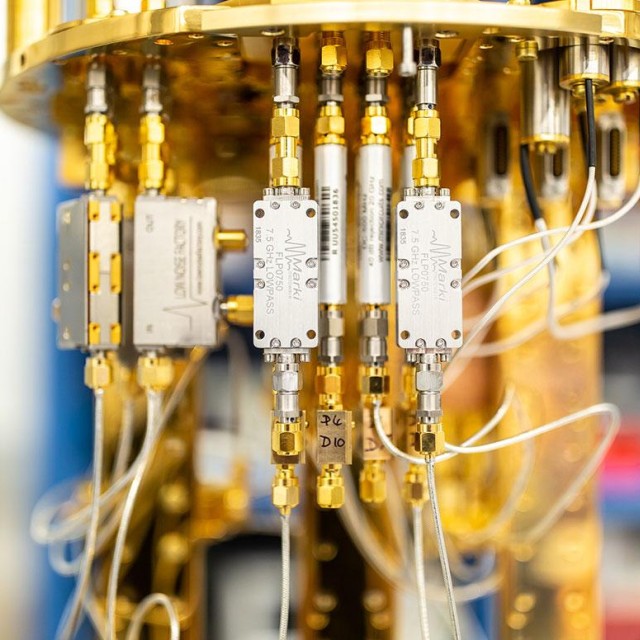1. Quantum technology will enable revolutionary advances across a wide variety of fields.
- Quantum networks will enable secure communication — protecting consumers from financial fraud and preventing the interception of sensitive information by companies and governments alike.
- Quantum computing will perform some calculations and tasks at speeds that leave classical computers in the dust — enabling more accurate climate models, accelerating the pace at which we develop life-saving medicines, and creating a more resilient energy grid. It also could enable cities to optimize construction schedules and develop better traffic systems.
- Quantum sensors, sometimes made from tiny diamonds, can detect even minute changes in the environment. They could help with underground navigation, be used as super-sensitive chemical detectors to improve environmental monitoring, or even be placed in a human body to identify the smallest and earliest indicators of cancer.
- In the coming years, these innovations will also create tens of thousands of jobs in the Chicago region alone and drive billions of dollars in economic growth.
2. These real-world applications are closer than you may think.
- Our quantum networks are 10 times longer than a decade ago, and experts estimate that large-scale commercial quantum networks will be established in the United States in the next 10 to 15 years. One of the longest quantum networks is here in the Chicago area, connecting the University of Chicago to Hyde Park and to Argonne National Laboratory and Fermi National Accelerator Laboratory in the western suburbs.
- Our quantum computers are 100 times bigger than they were a decade ago. They are still too small and too error-prone for many applications, but some predict we could have a practical quantum computer within a decade.
- Quantum technologies are commercially available today — for instance, quantum sensors are being deployed for new methods of GPS-free navigation. Our quantum sensors can measure the length of a second 1,000 times more accurately than a decade ago, and some next-generation systems are already commercially available.
3. Quantum technology operates under a different set of rules — and we're harnessing them to our advantage.
- Matter has different properties at the atomic or sub-atomic level. And these rules are predictable, even if they might seem unintuitive at first glance.
- We call these properties quantum mechanics and, although we first observed them more than a century ago, we have only begun using them to our advantage in recent decades.
- Now, universities, governments, and industries are working together to develop quantum technologies. An entire quantum ecosystem has emerged — and, as it grows, there will be room for a wide variety of skills, from technicians, programmers, and engineers to people with backgrounds in business, marketing, and sales.



